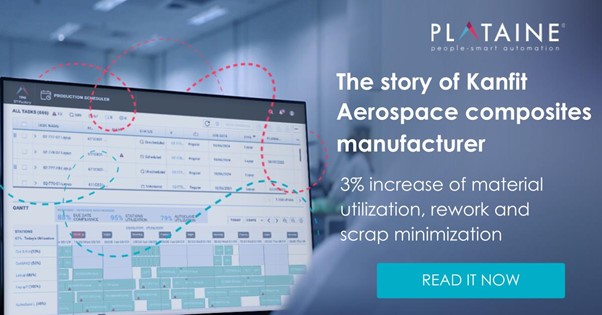Glossary
What is Cloud Computing?
Cloud computing refers to the delivery of computing resources, such as servers, storage, and applications, over the internet. Instead of relying on local servers or personal devices, cloud computing allows users to access and use these resources from anywhere with an internet connection. In the digital age, where data is increasingly central to business operations, cloud computing has become an essential tool for organizations across various sectors.
Types of Cloud Computing
There are three primary types of cloud computing: public, private, and hybrid. Public clouds are owned and operated by third-party service providers and offer resources to multiple users over the internet. Private clouds, on the other hand, are owned and operated by a single organization and are hosted on-premises or by a third-party provider. Hybrid clouds combine elements of both public and private clouds and allow organizations to use a combination of on-premises and cloud-based resources.
Benefits of Cloud Computing
One of the main benefits of cloud computing is cost savings. By using cloud-based resources, organizations can avoid the expenses associated with purchasing and maintaining on-premises infrastructure. Additionally, cloud computing allows for increased scalability, enabling organizations to adjust resources to meet changing demand without the need for significant upfront investments. Cloud computing can also improve efficiency by allowing for automated software updates and reducing the need for manual maintenance.
In manufacturing, cloud computing can provide additional benefits, such as improved supply chain management, enhanced quality control, and predictive maintenance. By using cloud-based platforms, organizations can better track and manage the movement of materials, components, and finished products across the supply chain. Cloud-based quality control tools can help manufacturers identify and address defects earlier in the production process, reducing waste and improving overall product quality. Cloud-based predictive maintenance tools can also help manufacturers avoid costly equipment downtime by proactively identifying potential issues before they occur.
How Cloud Computing Works
Cloud computing is built on a network of servers that provide various computing resources over the internet. These servers are typically housed in large data centers and are managed by third-party service providers. Cloud computing relies on a combination of virtualization, which allows multiple virtual machines to run on a single physical server, and software-defined networking, which enables the virtualization of network infrastructure.
Cloud computing services are typically provided on a subscription basis, with users paying for access to a set amount of resources over a specific period. These resources can include processing power, storage, and bandwidth. Users can access these resources through a web-based interface, which provides a simple and intuitive way to manage cloud-based infrastructure.
Cloud computing and security
Cloud computing has evolved to become a secure way of storing and accessing data. The security of cloud-based systems is ensured through a combination of physical security measures, such as access controls and surveillance systems, and technological security measures, such as encryption and authentication protocols. Cloud providers also offer redundancy and data backup services, which ensure that data is available and recoverable in the event of a hardware or software failure. Data security is further enhanced through the use of data encryption, both during transmission and storage, as well as the ability to monitor and audit access to data. Cloud providers typically have a team of dedicated security experts that work to continuously improve the security of their platforms, keeping up with the latest threats and vulnerabilities. Overall, cloud computing is a secure way of storing and accessing data, with many built-in security features that help ensure the confidentiality, integrity, and availability of data.
Cloud Computing and the Industrial Internet of Things in Manufacturing
Cloud computing in manufacturing has become a critical component of Industry 4.0, the fourth industrial revolution, which is characterized by the integration of advanced technologies such as artificial intelligence, robotics, and the Industrial Internet of Things (IIoT). In manufacturing, the IIoT refers to the use of sensors and other connected devices to gather and analyze data from production processes.
By using cloud-based platforms, manufacturers can take advantage of the vast amounts of data generated by IIoT devices to improve operational efficiency, reduce costs, and increase product quality. Cloud-based platforms can also provide manufacturers with real-time insights into production processes, allowing them to identify and address issues before they become significant problems.
Cloud computing has several specific applications in the manufacturing of composite parts. For example, cloud-based design and simulation tools can help manufacturers optimize the design of composite parts for strength and durability, while reducing weight and material waste. Cloud-based collaboration tools can also enable manufacturers to collaborate with suppliers and customers in real-time, reducing lead times and improving the overall efficiency of the production process. Additionally, cloud-based quality control tools can help manufacturers detect and address defects earlier in the production process, reducing waste and improving the quality of finished composite parts. By leveraging cloud computing, manufacturers of composite parts can achieve greater efficiency, reduce costs, and improve the overall quality of their products.
To summarize
Cloud computing has become an essential tool for organizations of all sizes across various sectors, including manufacturing. In manufacturing, cloud computing can provide additional benefits, such as improved supply chain management, enhanced quality control, and predictive maintenance, without the need for expensive hardware and infrastructure. Cloud computing is an integral component of Industry 4.0, and its use in combination with the IIoT can help manufacturers achieve greater efficiency, productivity, and profitability. In addition, cloud computing has evolved to become a secure way of storing and accessing data, with many built-in security features that help ensure the confidentiality, integrity, and availability of data. As the world becomes increasingly connected, cloud computing will continue to play a vital role in enabling businesses to adapt and thrive in the digital economy.
Learn more
Proactive Intelligence In Manufacturing






